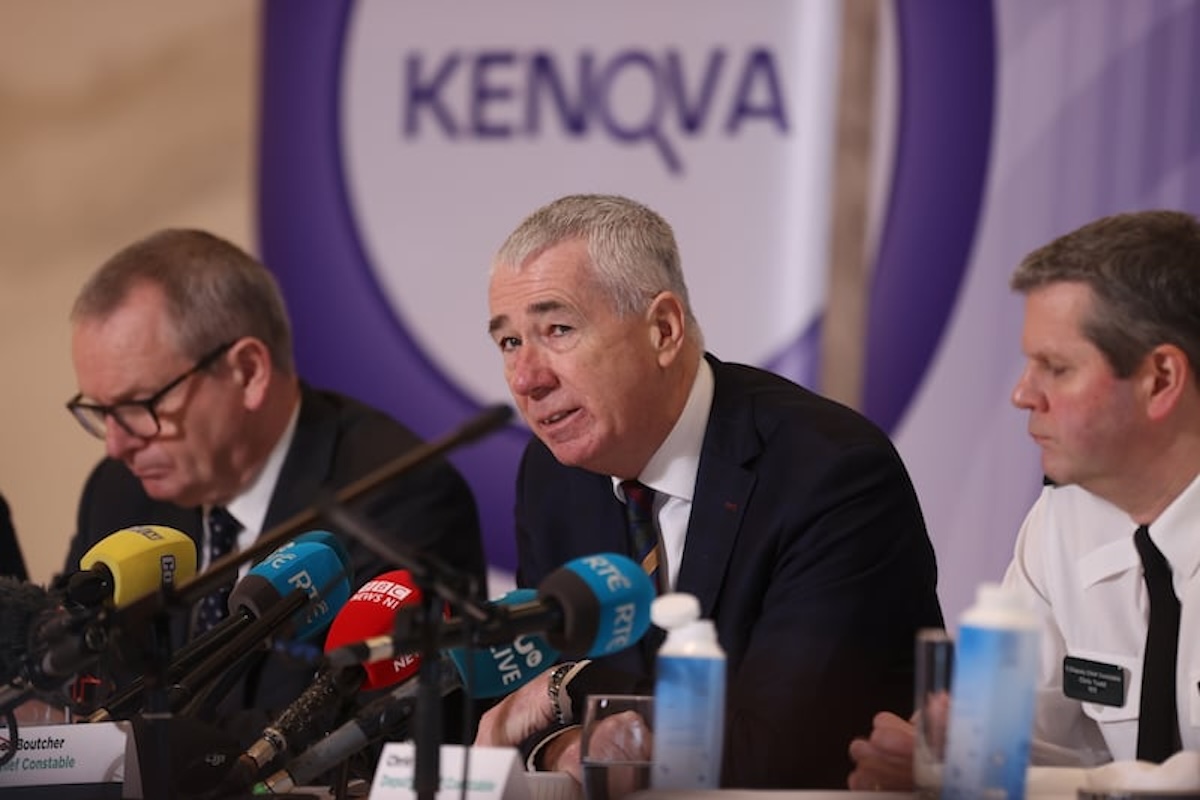
None of Jon Boutcher’s recommendations from Operation Kenova are likely to be actioned, writes Brian Feeney (for the Irish News)
Hardly a day goes by without a report in this newspaper about one or more inquests into the violent death of someone during the Troubles. Many of these inquests have been ordered by the north’s attorney general after previous unsatisfactory or cursory RUC inquiries, or none at all.
In almost every single instance the PSNI is currently running down the clock by delaying, withholding or fortuitously ‘finding’ large tranches of ‘new’ material so that the inquest can’t finish before May 1, when the despicable British Legacy Act comes into force and nullifies proceedings.
Most of these inquests are investigating events in excess of 30 years ago, so how can the ploy of national security be invoked? It seems the British government by hook or by crook is determined never to reveal its role in the so-called ‘dirty war’ here.
It’s not just a matter of protecting their military from prosecutions by providing them with what is effectively an amnesty, there’s also the small matter of the politicians (mainly Conservative) who were fully aware of what was going on.
Did senior politicians know that people were being injured or killed by bombs and shooting in order to protect the identities of informers? How much did the Joint Intelligence Committee in Whitehall know? How far up the line did information travel? To Margaret Thatcher, to John Major?
It stands to reason that police, military and security services would all want cover for actions that the de Silva report says could amount to conspiracy to murder.
Jon Boutcher, in his recent interim Kenova report, says RUC, MI5, Stalker and Stevens 1 all called for guidelines and one former RUC assistant chief constable raised the issue with Thatcher personally on a visit to the north. However, as Boutcher says, the British government “resisted these calls”. There was no legislative framework until 2000.
We know the misleadingly named Force Research Unit (FRU) was aware of virtually all IRA operations in Belfast from the mid-eighties until 1990 because their agent Scappaticci was informing them.
Another agent, Joe Fenton, working as an estate agent, was providing vacant houses in west Belfast for IRA meetings where shootings and bombings were planned and explosives stored. The houses were bugged so operations could be nixed. However, you couldn’t intercept every bomb run and arrest the squad. FRU’s input into the Task & Coordination Group would allow the TCG to decide which bomb run would succeed, which shooting would be allowed.
When Fenton’s activities finally raised the suspicions of Brendan ‘Darkie’ Hughes, as detailed in the Boston tapes, Fenton fled to England but returned in about a fortnight, apparently having been assured by his handlers he would be safe.
He was shot almost immediately, according to Hughes, to protect a more senior agent. Scappaticci?
In short, the actions of the TCG weren’t about saving lives but about protecting their sources of information to defeat the IRA. The Stevens inquiries also found the FRU colluded with loyalists, providing them with republican targets.
Boutcher’s Kenova report has come and gone: a damp squib. There’ll be private reports to victims’ families but that’s it. Incredibly (maybe wrong word, that should be ‘predictably’?) there are no prosecutions and Boutcher wasn’t even allowed to say Scappaticci was an informer. How ridiculous.
The worst about the stupid British security policy of ‘neither confirm nor deny’ is that the families of victims killed by Scappaticci or others in the IRA will never know whether their deceased relative was an informer or killed to protect one.
You’ll notice that the British government ignored all Boutcher’s recommendations. This current government will never apologise. After all, they’ve spent years avoiding blame
Finally, you’ll notice that the British government ignored all Boutcher’s recommendations. This current government will never apologise. After all, they’ve spent years avoiding blame, so why apologise?
None of the rest of Boutcher’s recommendations will be actioned. You have to laugh at No 7: “Review the security classification of previous Northern Ireland legacy reports in order that their contents and (at the very least) their principal conclusions and recommendations can be declassified and made public.” Fat chance.
Maybe as PSNI chief constable Boutcher could follow his own recommendation, No 2: “Subject all public authorities to an unqualified and enforceable legal obligation to cooperate with and disclose information and records…”?
![[Irish Republican News]](https://republican-news.org/graphics/title_gifs/rn.gif)
![[Irish Republican News]](https://republican-news.org/graphics/title_gifs/harp.gif)

